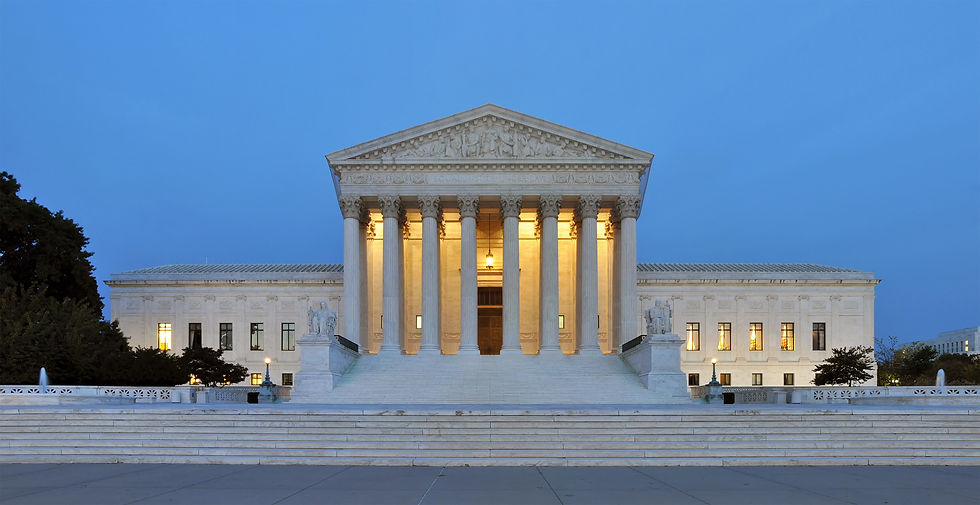ON DOBBS v. JACKSON WOMEN’S HEALTH ORGANIZATION
- Lily Potito
- Jun 24, 2022
- 2 min read
Updated: Apr 14, 2024

I’m not going to debate whether the Supreme Court’s decision in Dobbs was right or wrong. Its legality does not rest on my (or your, or anyone’s) interpretation of the law. Even the dissenting Justices cannot change the decision.
What I do want to address is what this decision means, from a practical perspective. From the conservative Catholic viewpoint, people are cheering this decision, posting that “Roe v. Wade was overturned on the Feast of the Sacred Heart,!” That statement, by itself, is correct. But its implications are far from true. Roe v. Wade was overturned in that the Supreme Court held that the decision made in that case, that abortion was an absolute right, was incorrect. The Supreme Court did not state abortion is illegal. In fact, they said the opposite; they remanded the question to the people: “We therefore hold that the Constitution does not confer a right to abortion. Roe and Casey must be overruled, and the authority to regulate abortion must be returned to the people and their elected representatives.”
Further, the Opinion discusses what the benchmark would be for State laws: “It follows that the States may regulate abortion for legitimate reasons, and when such regulations are challenged under the Constitution, courts cannot “substitute their social and economic beliefs for the judgment of legislative bodies. . . . That respect for a legislature’s judgment applies even when the laws at issue concern matters of great social significance and moral substance. . . . A law regulating abortion, like other health and welfare laws, is entitled to a “strong presumption of validity.” . . . It must be sustained if there is a rational basis on which the legislature could have thought that it would serve legitimate state interests.”
“These legitimate interests include respect for and preservation of prenatal life at all stages of development . . . the protection of maternal health and safety; the elimination of particularly gruesome or barbaric medical procedures; the preservation of the integrity of the medical profession; the mitigation of fetal pain; and the prevention of discrimination on the basis of race, sex, or disability.”
Whatever side of the abortion debate you are on, this is not a clear win or a complete lose. Abortion remains legal, with each State having control of its own laws. There will still be plenty of debate, and lots of activism on both sides. The Mississippi’s Gestational Age Act, upheld by this decision, provides that “except “in a medical emergency or in the case of a severe fetal abnormality,” abortion is prohibited “if the probable gestational age of the unborn human being has been determined to be greater than fifteen (15) weeks.” It not a perfect decision for either side, but perhaps it is one where a middle ground consensus can be reached, where belief and ideologies are not forced by one group upon another, but, rather, the rule of law of our constitutional federal republic, where the voice of both the majority and minority can be heard, may prevail.
























Comments